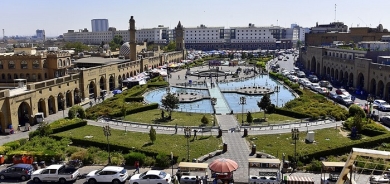Russia says Israel’s mounting speculation of a nuclear Iran can be ‘catastrophic’

“The inventions” concerning Iran’s nuclear program “are increasing the tension and could encourage moves towards a military solution with catastrophic consequences,” Mikhail Ulyanov told the Interfax news agency.
Speculation has risen in recent weeks, driven in part by comments made by Israeli officials, that the Jewish state may soon launch a military strike on Iran’s nuclear facilities to slow or halt its controversial program.
Israel and much of the international community believe that Iran’s nuclear enrichment program masks a covert weapons drive, a charge Tehran denies.
The “noise” about Iran’s nuclear intentions “has political and propaganda objectives which are far from being inoffensive,” said Ulyanov, head of the security and disarmament department in Russia’s foreign affairs ministry.
Israeli Defense Minister Ehud Barak said last month that any decision by Israel on whether to attack Iran in a bid to halt its nuclear program remained “very far away.”
However Israel’s chief of military intelligence, General Aviv Kochavi, told a security conference last week that Iran had enough radioactive material to produce four nuclear bombs.
And an expert on Israeli intelligence, Ronen Bergman, wrote in the New York Times last month that an Israeli attack could come this year.
But Ulyanov said: “In our evaluations we prefer to be based on the actual facts, which are that Iran’s nuclear activity is under strict monitoring by the International Atomic Energy Agency (IAEA).”
Israel, the sole if undeclared nuclear power in the Middle East, has supported tough sanctions against Iran while refusing to take the military option off the table.
Russia has so far backed four rounds of U.N. Security Council sanctions against Iran. But both Russia and China have made it clear that they are not prepared to back any more.
Moscow’s position is that European and U.S. sanctions against Iran are aimed at undermining fresh talks on the issue of Iran’s nuclear program.
AFP














